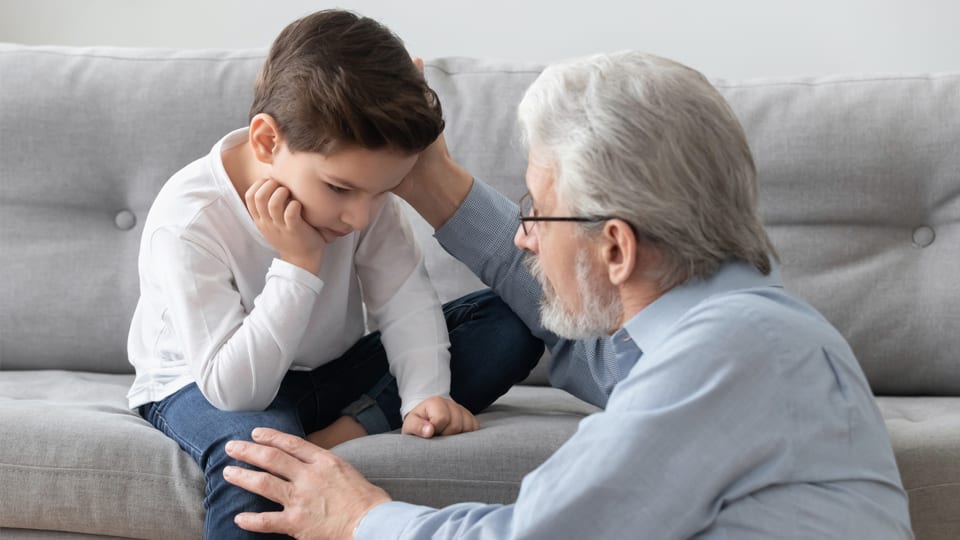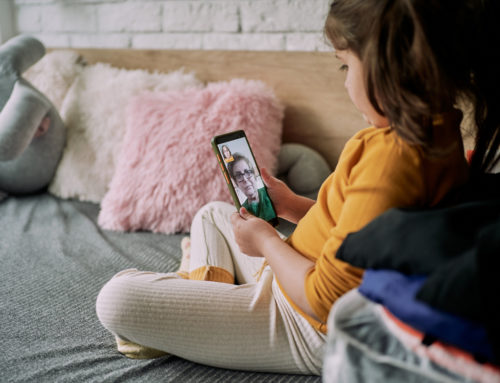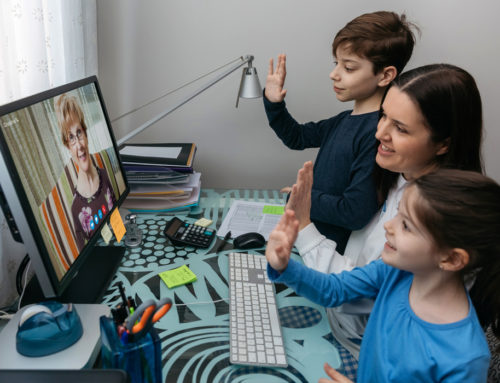With everything going on in the world, it’s hard for adults not to feel overwhelmed so why would children be any different? After all, they hear the news and pick up signals from their family and other adults. But how do you handle your grandchildren’s anxiety if you are feeling the same way? Well, FirstLantic.com has six tips that you can use to manage your own feelings of anxiousness and help children cope as well.
1. Stick to a routine
As easy as it might be to throw that out the window, routines create structure and certainty which everyone can use right now. Keep as much of your child’s old routine in place as possible, or start a new one, but either way, try to maintain a schedule. It’s especially important that meals, bedtime, schoolwork, and playtime occur during the same hours each day. You can ease up a little on the weekend but try to keep structure during the weekdays.
2. Encourage positive thinking
Of course, that’s easier said than done. However, try some exercises that might help both of you get your minds off of the negative. Actively look for a positive story to share with each other every day. Read it out loud together and then ask them to spend a few more minutes writing down what they are thankful for each day. It could be as simple as being grateful for a sunny day but the act of writing it down and speaking about it will help to elevate the mood.
3. Teach coping mechanisms
If children start to feel overwhelmed, encourage them to take a deep breath or sit down and count backward from a 100. The idea is to get them out of the negative zone and get them focused on something else. There are also plenty of great online activities such as touring a virtual museum or playing an online learning game that will help to take their mind off of their anxiousness. Make sure they know it’s normal to feel anxious sometimes but there are ways that they can take control of it themselves. However, avoid giving too much reassurance. As Dr. Jerry Bubrick, a Ph.D. and clinical psychologist at the Child Mind Institute said, “Kids can come to rely on the reassurance and want to hear it more and more often — and when a parent isn’t able to give them complete reassurance their anxiety can worsen.”
4. Get some fresh air
Physical activity is really important at any time but especially when you are feeling stressed. Take a break each day and get out of the house. Focus on the beauty of nature by asking kids to look for a specific kind of bird or find the names of certain flowers or trees. If you live in a city, play a game out of spotting a certain make or color of a car. Regardless of what you do, the process of going outside and breathing some fresh air (even with a mask on) can help you feel more positive.
5. Check-in
Don’t overlook signs of anxiousness such as nail-biting, fidgeting, or irritability. Even if you don’t see specific behavioral changes, check-in each day to ask them how they are feeling. Don’t let anxiety build-up to the point that it’s seriously impeding the child’s daily life. By simply sitting down and spending the time to listen, you will catch problems sooner.
6. Stay connected
Even if you are social distancing physically, it doesn’t mean that you can’t pick up the phone or get on video chats and speak with family and friends. You can also start writing letters with children. That helps them keep in touch and you can work with them to improve their written and verbal skills. They can write about what they are learning in school, mention books they are reading or activities they have participated in, etc. Or maybe they would rather write a story and send that to a loved one. Again, the idea is to get their mind focused on connecting with others and not thinking about those things that make them anxious or that they can’t control.
In summary, it’s not unusual for our kids to pick up vibes from us both negative and positive. “Children of any age can experience anxiety,” explains Roshini Kumar, LPC, a clinical therapist at Children’s Health.” So, think of these tips as ways to help the whole family cope with the uncertainty that we face right now. And don’t miss FirstLantic’s previous blog as we provided a comprehensive list of learning resources and activities that children can partake in virtually to stay busy, healthy, and happy.
Other Resources:
- Helping your child cope with COVID-19
- You can also download this free online-exclusive chapter from a new book, Building Resilience in Children and Teens: Giving Kids Roots and Wings, 4th edition
- Learn other healthy ways to cope with stress.
 AVAILABLE 24 HOURS A DAY/7 DAYS A WEEK
AVAILABLE 24 HOURS A DAY/7 DAYS A WEEK Careers
Careers







